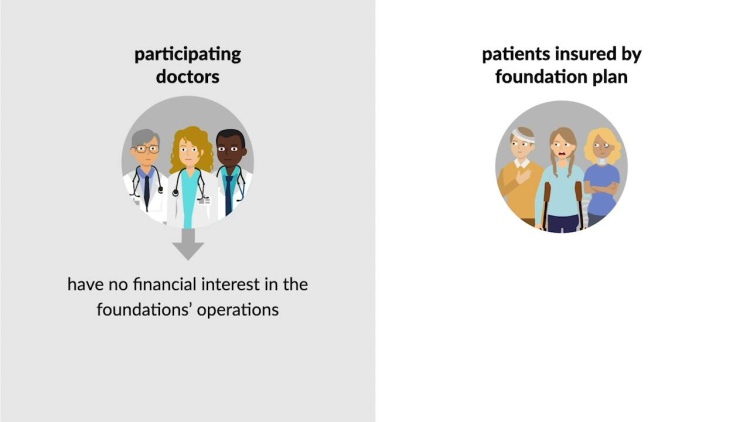Arizona v. Maricopa County Medical Society
United States Supreme Court
457 U.S. 332 (1982)
- Written by Nicholas Decoster, JD
Facts
Around 1,750 doctors in Maricopa County, Arizona, joined the Maricopa Foundation for Medical Care, and about 400 joined the Pima Foundation for Medical Care (collectively, the foundations) (defendants). The foundations established schedules of maximum fees that member-doctors could accept as payment from patients covered by foundation-approved insurance plans. The member-doctors had no financial interest in the foundations’ operations, but the foundations were authorized to collect payment from insurance companies to compensate member-doctors for services provided. Patients who had foundation-approved medical insurance and saw member-doctors were guaranteed complete coverage for services. The State of Arizona (plaintiff) sued the foundations, arguing that the fee schedules amounted to price-fixing agreements that were per se violations of the Sherman Antitrust Act. The foundations countered that the fee schedules were not unlawful price-fixing agreements because they were horizontal agreements, established only maximum prices, and had procompetitive effects. After limited discovery, Arizona moved for summary judgment. The district court denied the motion, and the court of appeals affirmed. The United States Supreme Court granted certiorari.
Rule of Law
Issue
Holding and Reasoning (Stevens, J.)
Dissent (Powell, J.)
What to do next…
Here's why 906,000 law students have relied on our case briefs:
- Written by law professors and practitioners, not other law students. 47,100 briefs, keyed to 996 casebooks. Top-notch customer support.
- The right amount of information, includes the facts, issues, rule of law, holding and reasoning, and any concurrences and dissents.
- Access in your classes, works on your mobile and tablet. Massive library of related video lessons and high quality multiple-choice questions.
- Easy to use, uniform format for every case brief. Written in plain English, not in legalese. Our briefs summarize and simplify; they don’t just repeat the court’s language.





